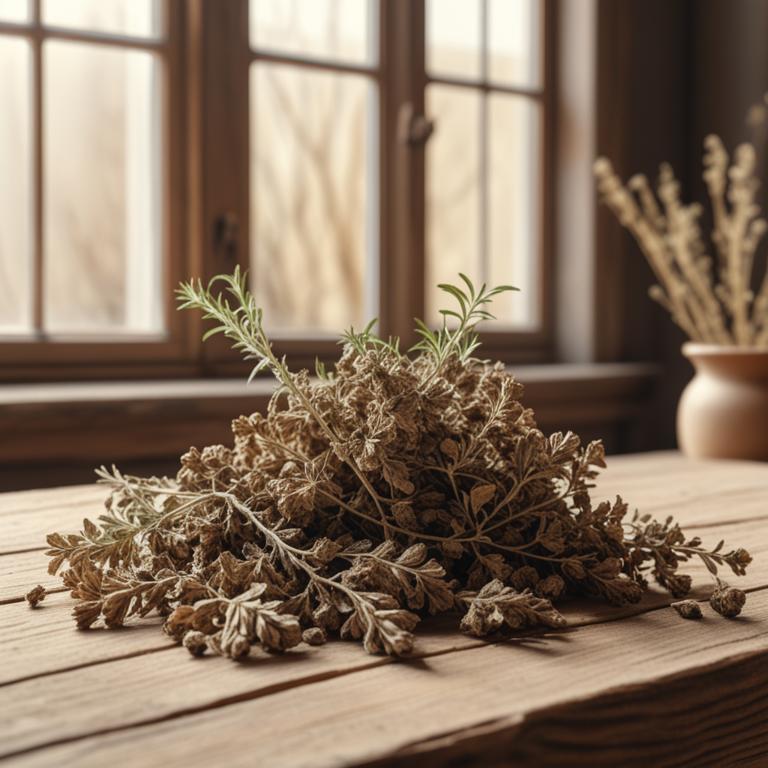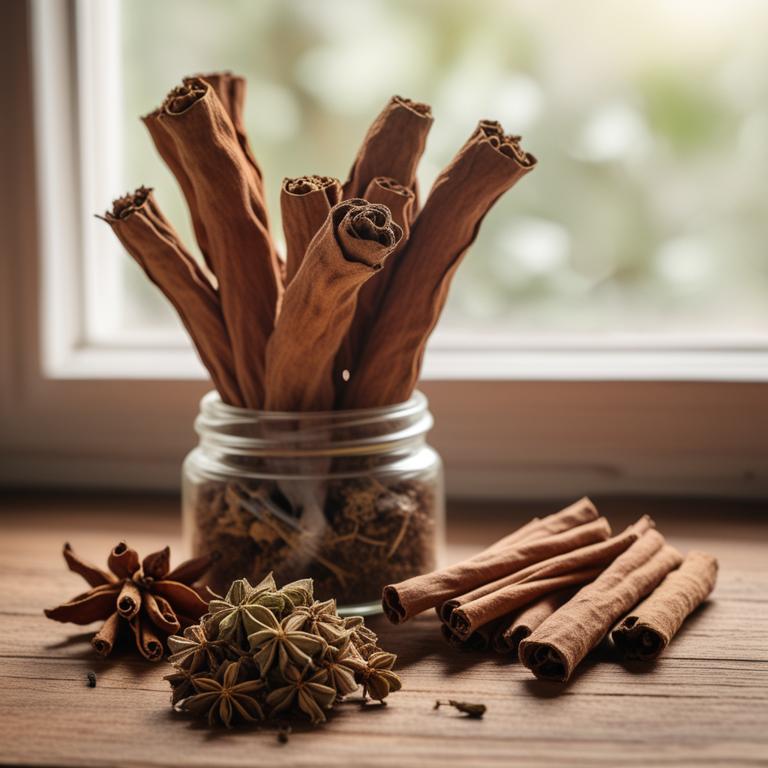Updated: Dec 1, 2024
Inflammation: Understanding the Causes and the Therapeutic Use of Medicinal Herbs and Herbal Preparations
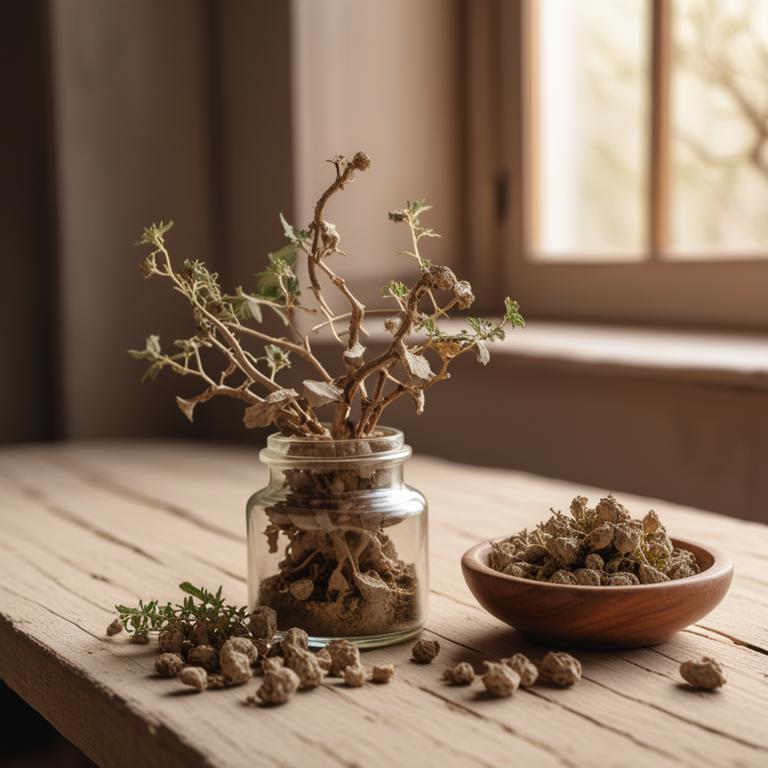
Inflammation is a natural response of the body to injury or infection, but when it gets out of control, it can cause pain, swelling, and fatigue.
This can affect your daily life, making it hard to move, think, and feel well. Inflammation is often caused by a combination of factors, including poor diet, lack of exercise, stress, and environmental toxins. When we eat a diet high in processed foods, sugar, and unhealthy fats, our body can become inflamed. We can also experience inflammation from chronic stress, pollution, and even certain medications. As a result, our body's natural response to injury or infection becomes exaggerated, leading to more pain and discomfort.
Fortunately, there are many herbs that have anti-inflammatory properties, which can help to soothe and calm the body. Turmeric, for example, contains a powerful compound called curcumin, which has been shown to reduce inflammation and improve joint health. Ginger is another popular herb for inflammation, as it has anti-inflammatory compounds that can help to ease pain and reduce swelling. You can use these herbs in various forms, such as teas, capsules, or even topical creams. Drinking a warm turmeric tea or ginger tea can be a soothing way to calm inflammation, while taking a capsule or applying a cream can provide targeted relief.
Additionally, you can also cook with these herbs, adding fresh ginger to your stir-fries or using turmeric in your soups.
Table of Contents
What are the root causes of inflammation?
The main causes of inflammation are various and can be quite complex, but let's break it down.
Food allergens are one of the main causes of inflammation. When we eat something we're allergic to, our body mistakes it for a foreign invader and sends out chemicals to fight it, causing inflammation. This can lead to symptoms like digestive issues, skin rashes, and respiratory problems. Bacterial infections are another major cause of inflammation. When bacteria enter our body, they trigger an immune response, releasing chemicals that cause inflammation. This can lead to symptoms like fever, pain, and swelling.
Certain types of bacterial infections, like pneumonia or tuberculosis, can cause severe inflammation that requires medical attention. Viral infections, like the flu or common cold, can also cause inflammation. When a virus enters our body, it triggers an immune response, causing inflammation in the affected area. This can lead to symptoms like fever, cough, and body aches. Fungal infections, like athlete's foot or ringworm, can cause inflammation by triggering an immune response. When a fungus enters our body, it triggers the release of chemicals that cause inflammation, leading to symptoms like itching, redness, and swelling. Finally, parasitic infections, like malaria or hookworm, can cause inflammation by triggering an immune response.
When a parasite enters our body, it triggers the release of chemicals that cause inflammation, leading to symptoms like fever, pain, and swelling.
What are the advantages of herbal remedies for inflammation?
Using herbs for inflammation can be a great way to manage pain and discomfort.
These herbs have anti-inflammatory properties that can help reduce swelling and ease soreness. They can also help alleviate symptoms such as stiffness and joint pain, making it easier to move around and perform daily activities.
Additionally, some of these herbs have antioxidant properties, which can help protect the body from damage caused by free radicals, a common contributor to inflammation. By incorporating herbs into your diet or using them topically, you may be able to reduce your reliance on over-the-counter medications and their potential side effects. This can be especially beneficial for people with chronic inflammation, as it can help promote long-term health and wellness.
Some herbs may also have anti-cancer properties, although this is still a topic of ongoing research.
What are the primary medical herbs for managing inflammation?
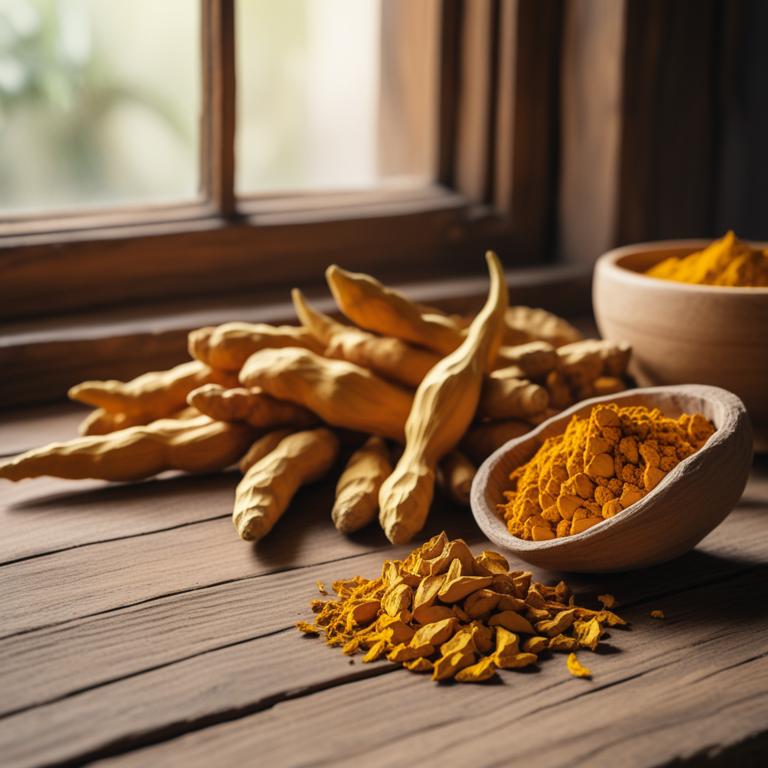
Herbs have been used for centuries to help with inflammation, and for good reason.
Curcuma longa, also known as turmeric, contains a powerful compound called curcumin that has potent anti-inflammatory properties. It blocks the production of chemicals that cause inflammation, such as COX-2, which makes it a great natural alternative to ibuprofen. Another herb, Zingiber officinale, or ginger, has anti-inflammatory compounds like gingerol and shogaol that also reduce inflammation by blocking COX-2. Licorice root, Glycyrrhiza glabra, has anti-inflammatory properties too.
It prevents the production of pro-inflammatory chemicals and also protects the stomach lining from damage caused by inflammation. Echinacea purpurea, commonly known as coneflower, helps the body fight off infections that can cause inflammation. Its compounds, like alkylamides and caffeic acid, boost the immune system and reduce inflammation. Finally, Salvia officinalis, or sage, has anti-inflammatory properties that help reduce inflammation and pain.
Its compounds, like rosmarinic acid, block the production of pro-inflammatory chemicals and also have antioxidant properties that protect the body from cell damage.
What are the most effective herbal preparations for inflammation?
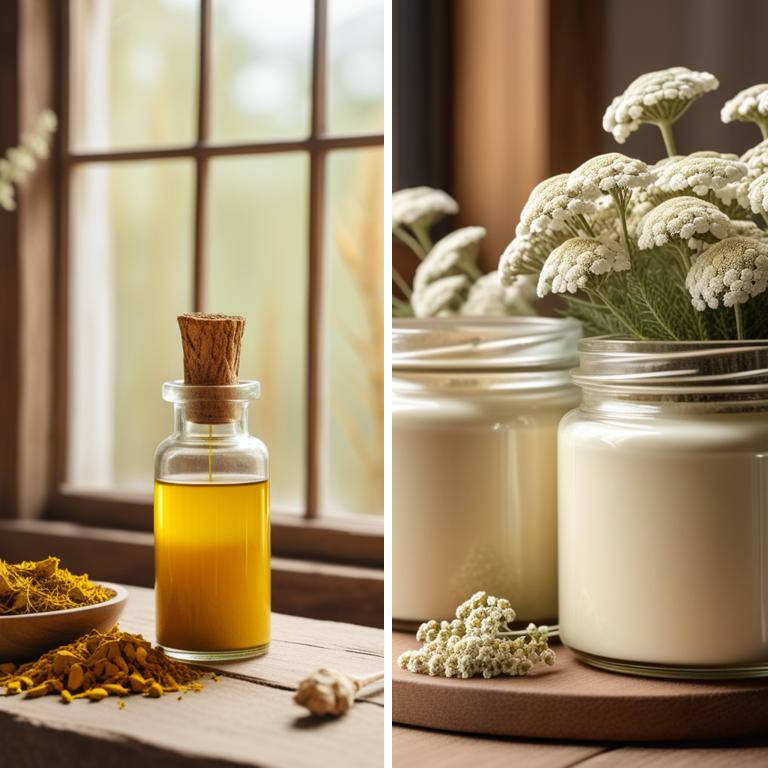
When it comes to managing inflammation, herbal preparations can be a great option.
A tincture is a liquid extract that's easy to take, and it's often used for pain relief and reducing swelling. The active ingredients in the herbs are quickly absorbed into the bloodstream, giving fast relief from inflammation. An infusion is another type of herbal preparation that's made by steeping herbs in hot water. This method is gentle and preserves the delicate properties of the herbs, making it perfect for soothing irritated tissues and reducing inflammation. Decoctions are made by simmering herbs in water for a longer period, which releases the more stubborn compounds in the herbs. This method is great for reducing inflammation in joints and muscles, as the active ingredients can penetrate deeper into the tissue.
Capsules are a convenient way to take herbal preparations, especially for those who don't like the taste of herbs. They're also a great option for people who have trouble swallowing liquids. The herbs are dried and powdered, then filled into capsules, which can be taken as directed to reduce inflammation. Herbal creams are topical preparations that are applied directly to the affected area. They're perfect for reducing inflammation in specific areas, such as joints or skin irritations. The active ingredients in the herbs are absorbed into the skin, providing localized relief from inflammation. All of these herbal preparations can be made from various herbs that are known for their anti-inflammatory properties, such as turmeric, ginger, and willow bark.
By choosing the right preparation and herb, you can find a natural way to manage inflammation and feel better.
Additional Resources:
Which herbs can exacerbate inflammation and should be avoided?
If you have inflammation, it's best to be cautious with certain herbs.
For example, Cinchona officinalis contains compounds that can stimulate the heart and increase blood pressure, which might not be ideal for people with inflammation, as their blood vessels are already inflamed and sensitive. Silybum marianum, also known as milk thistle, can cause allergic reactions in some individuals, and if you're already dealing with inflammation, your body might react more strongly to its compounds.
Trifolium pratense, or red clover, contains estrogen-like substances that might exacerbate inflammation, especially in people with conditions like endometriosis or fibroids. Rauvolfia serpentina, used in some traditional medicines to lower blood pressure, can interact with medications you're taking for inflammation, leading to adverse effects.
Angelica archangelica, commonly used in teas and supplements, might slow down blood clotting, which could be problematic if you have bleeding issues due to inflammation.
FAQ
Are there any specific herbs that can prevent inflammation?
Turmeric and ginger are two herbs known for their anti-inflammatory properties.
Turmeric contains a compound called curcumin, which helps reduce swelling and pain. Ginger, on the other hand, has a compound called gingerol that has similar effects.
Both herbs have been used for centuries in traditional medicine to treat various inflammatory conditions.
Is it safe to use herbal remedies for inflammation during pregnancy?
When pregnant, it's a good idea to think twice about using herbal remedies for inflammation.
Some herbs, like feverfew and pennyroyal, can cause problems for the mother and the baby. Others, like ginger, might be okay in small amounts, but it's hard to know for sure.
Better to be safe than sorry.
Are there any herbs that can reduce the frequency of inflammation?
Turmeric contains a compound called curcumin, which is known to reduce inflammation.
Ginger has anti-inflammatory properties that can help soothe irritated tissues. Boswellia, also known as frankincense, has been used for centuries to reduce inflammation and joint pain.
These herbs may help decrease the frequency of inflammatory episodes.
Related Articles

The Role of Medicinal Herbs in Preventing Infection
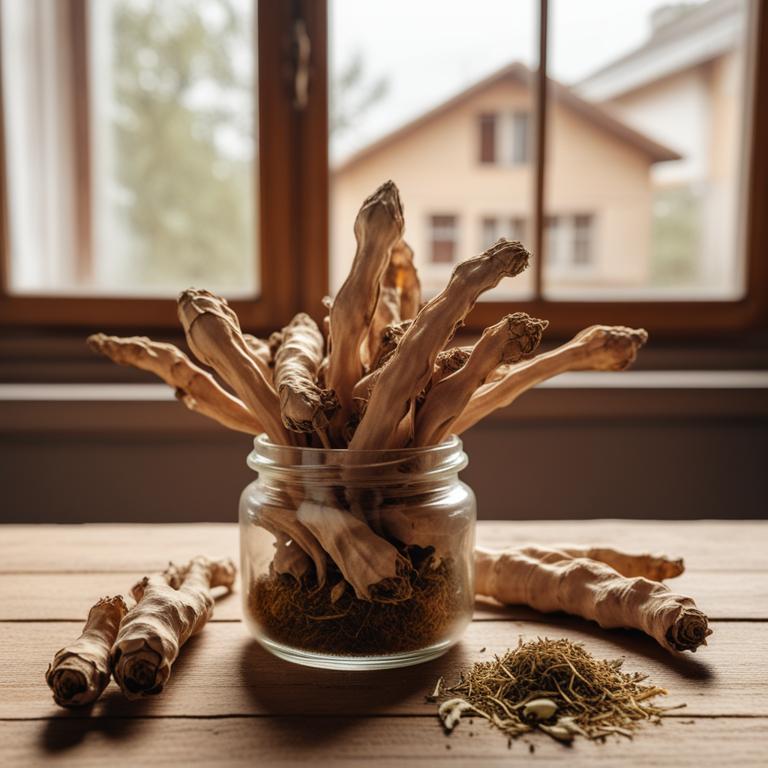
Inflammation: Understanding the Causes and the Therapeutic Use of Medicinal Herbs and Herbal Preparations
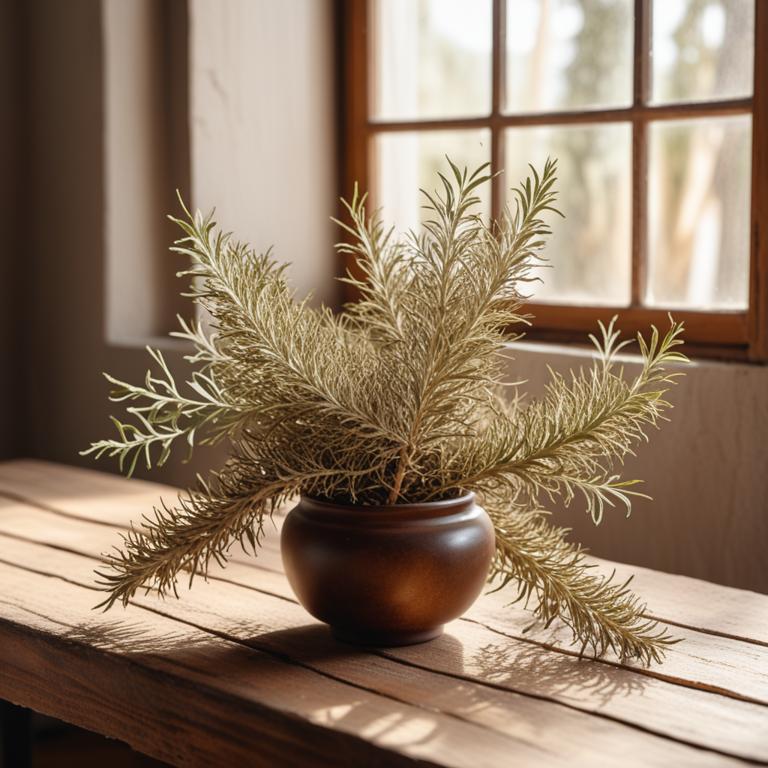
Inflamed Gums: A Guide to Causes, Medicinal Herbs, and Remedies

The Flu: A Guide to Causes, Medicinal Herbs, and Herbal Preparations

Feverish Feeling: Causes, Symptoms, and Herbal Solutions
